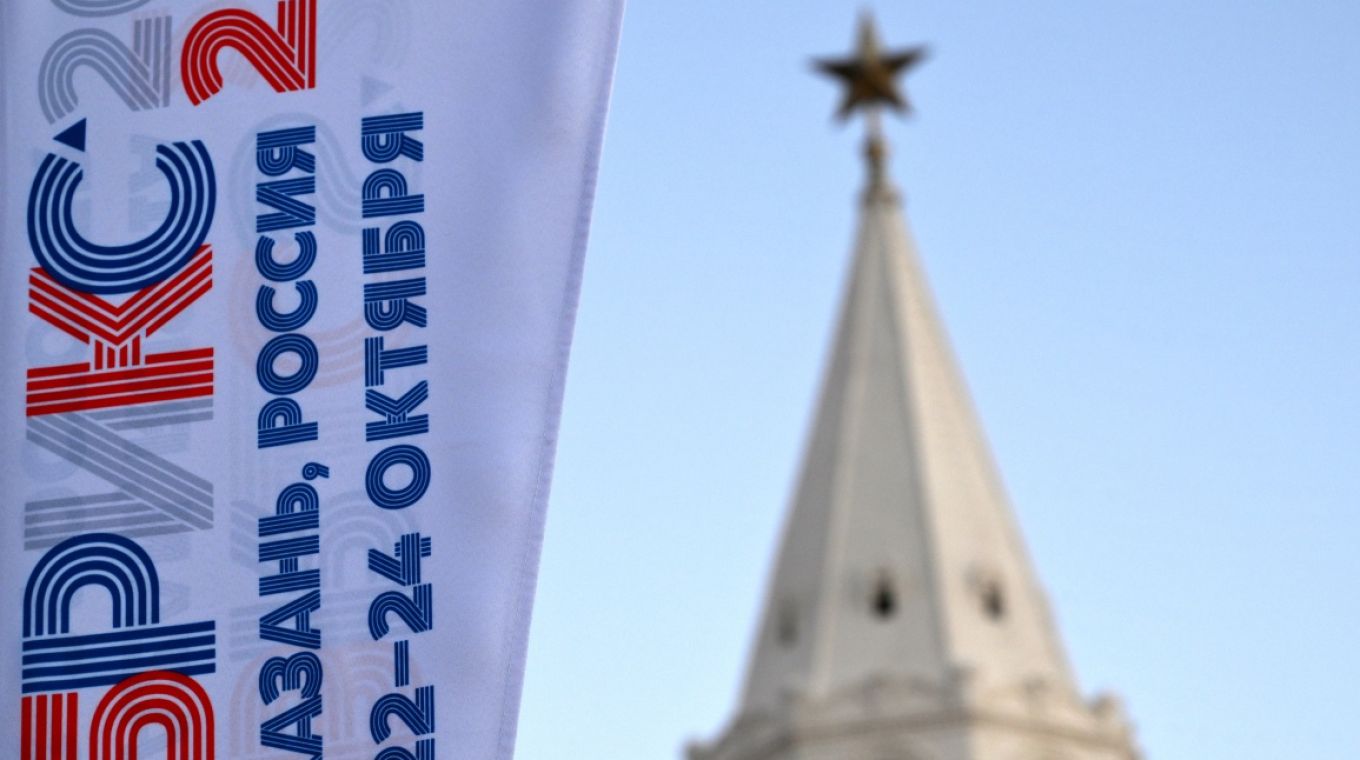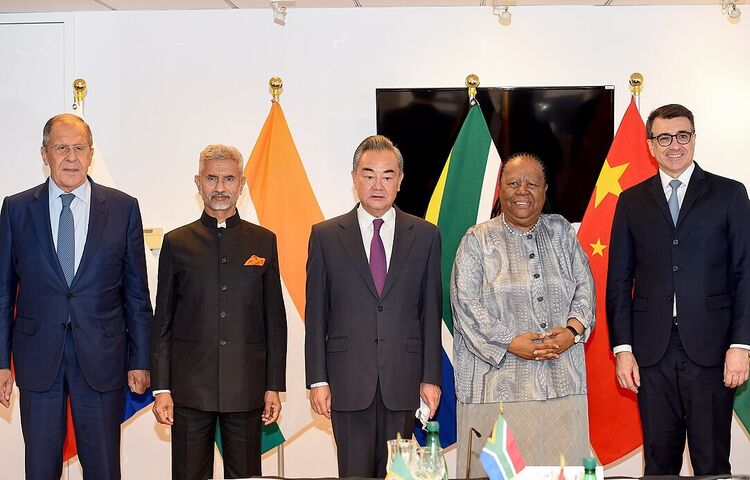This is the real deal—a major shift in the global balance. A new world order is rapidly taking shape. BRICS is the new exclusive club, and we, the Western nations, aren't in it.
This year’s BRICS summit cannot be underestimated
BRICS’s rapid development can be seen as a direct outcome of the aggressive policies of the U.S. "rules based" world order. As U.S. hegemony fades, a new "law-based" order is beginning to emerge. The NATO proxy war against Russia in Ukraine has accelerated this process. Soon, BRICS may replace the G7 and G20. The Kazan summit aims to institutionalize this new organization—a colossal task.
America, on the sidelines, will try to disrupt the party. Lloyd Austin, the United States Secretary of Defense, recently visited Volodymyr Zelensky in Kyiv to discuss long-range missile support against Russia. Meanwhile, Israel has promised to attack Iran in the coming days. A leaked document revealed the attack plan: a decapitation strike against the Iranian government.
Expanding the club
BRICS stands for its founding countries: Brazil, Russia, India, China, and South Africa. It has expanded its membership to include Egypt, Ethiopia, Iran, and the United Arab Emirates. The list of aspirants is long.
In Africa, the following countries have applied for BRICS membership: Angola, Burkina Faso, Cameroon, Central African Republic, Congo, DR Congo, Equatorial Guinea, Ghana, Libya, Mali, Nigeria, Senegal, South Sudan, Sudan, Tunisia, Uganda, and Zimbabwe. In the Americas, the countries include: Bolivia, Colombia, Cuba, El Salvador, Nicaragua, Peru, and Venezuela. In Asia, the countries are: Afghanistan, Bahrain, Bangladesh, Indonesia, Iraq, Kuwait, Laos, Malaysia, Myanmar, Pakistan, Palestine, Saudi Arabia, Sri Lanka, Syria, Turkey, Thailand, Vietnam, and Yemen. In Eurasia, Azerbaijan, Belarus, and Serbia have applied.
This year's summit aims to lay a solid foundation for BRICS to expand.
Meeting of BRICS foreign ministers on 22 September 2022
This year's agenda is very dense
I. Policy and Security Priorities
1. Seamlessly and harmoniously integrating new members into the BRICS format.
2. Developing modalities for interaction with BRICS partner countries.
3. Enhancing the efficiency of the international relations system and ensuring its further democratization.
4. Upholding the supremacy of international law and the principle of sovereign equality among states.
5. Creating strong BRICS ties with developing nations and their integration associations, including in the 'outreach' and 'BRICS+' formats.
6. Promoting the institutional development of BRICS.
7. Intensifying cooperation to ensure international security and strategic stability at both regional and global levels, while maintaining and strengthening international legal regimes in arms control, disarmament, and non-proliferation.
8. Developing the capacity for cooperation in countering terrorism.
9. Combatting money laundering and financing of terrorism.
10. Strengthening cooperation to combat crime, including efforts to recover assets obtained through criminal means.
11. Developing practical cooperation to address challenges related to the illicit trafficking of narcotic drugs, psychotropic substances, and their precursors.
12. Intensifying dialogue on anti-corruption issues.
13. Enhancing cooperation to establish a system for ensuring international information security to prevent and resolve conflicts in the information space.
II. Economic and Financial Cooperation
1. Uniting efforts against the fragmentation of the multilateral trade system, increased protectionism, and illegal unilateral trade restrictions.
2. Adapting the global trade system to threats arising from global crises.
3. Strengthening interaction among BRICS states on relevant multilateral platforms, including the World Trade Organization, International Monetary Fund, World Bank Group, and G20.
4. Increasing trade volume and direct investment.
5. Promoting a balanced and fair transition to a low-carbon economy.
6. Implementing the Action Plan for Innovative Cooperation for 2021-2024 and further intensifying cooperation in this area.
7. Enhancing the role of BRICS states in the international monetary and financial system.
8. Developing interbank cooperation and transforming the international payment system, expanding the use of national currencies in mutual trade.
9. Strengthening cooperation on payment systems and financial technologies.
10. Intensifying dialogue on industrial development to promote increased labor productivity and digitalization.
11. Strengthening cooperation in agriculture, including mutual trade and ensuring food security.
12. Intensifying cooperation in the energy sector to enhance energy security.
13. Expanding cooperation in the transport sector.
14. Boosting capacity to detect and respond to outbreaks of infectious diseases of international concern and cooperating to reduce the spread of epidemics.
15. Intensifying cooperation to prevent and address natural and man-made emergencies.
16. Strengthening cooperation in technology transfers through BRICS networks and supporting joint high-tech production.
17. Intensifying cooperation among the business communities of BRICS states.
III. Humanitarian and Cultural Cooperation
1. Institutionalizing interparliamentary cooperation.
2. Strengthening cooperation in education by enhancing the capacity of the BRICS Network University and the BRICS Cooperation Alliance in technical and vocational education.
3. Intensifying collaboration among representatives of the BRICS scientific and expert community.
4. Strengthening interaction among young scientists and innovators.
5. Promoting the development of multifaceted cooperation in cultural affairs.
6. Intensifying interaction in physical culture and sports.
7. Enhancing cooperation in tourism.
8. Supporting practical interaction in youth policy implementation.
9. Promoting social partnerships, volunteer movements, and volunteering.
10. Supporting cooperation among BRICS regions, cities, and municipalities.



